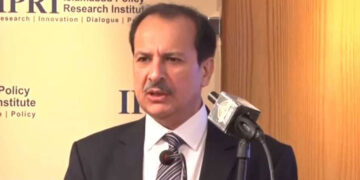St Kitts and Nevis: Prime Minister Dr Terrance Drew and Citizenship by Investment Unit Head Michael Martin addressed several unfounded claims about the Real Estate Investment Option of St Kitts and Nevis’ CBI Programme.
The CBI Programme of St Kitts and Nevis, under the guidance of Prime Minister Terrance Drew and Citizenship by Investment Unit (CIU) Head Michael Martin, recently updated its regulations (the 2023 Regulations) to address issues related to financing practices and ghost projects that have been observed under the Programme’s Real Estate Option (REO).
The government launched the recent multi-faceted real estate development application and approval process to terminate loopholes and assure stricter enforcement of escrow and project milestone necessities. Dr Drew said these process enhancements aimed to bring credibility and raise the value of the CBI Programme and the nation’s development by providing outstanding prospects for investors.
Terrance Drew outlined that the CBI team carefully considered and consulted on the alterations made to the real estate development project approval requirements to strengthen the administrative and legislative framework of the Citizenship by Investment Program. These improvements were necessary to maintain the integrity of the esteemed CBI Programme and ensure that it continues to be one of its most valuable, well-regulated, and transparent programmes, said the PM.
Defiant to the various imputations, the 2033 regulations haven’t lessened the number of genuine real estate development options available to investors. Rather, they have directed a more robust evaluation process, ensuring that every real estate project chosen for the Programme aligns with the high sustainability standards, quality and long-term value creation.
The government highlighted that it understands the significance of maintaining confidence in the CBI Programme. It assures all stakeholders that the 2023 regulations are not meant to curb investment but to foster an environment of stability, trust and prosperity for everyone involved.
The CBI Board of Governors follows the 2023 Regulations to approve real estate development projects. Several real estate units from these projects can be sold to qualified CBI applicants. These projects will be completed on a pre-defined schedule and with a designated escrow drawdown process.
Also, the CIU highlighted that the aim of the improved real estate project approval process is to restrict poor-quality real estate developments, tarnishing the Programme and the nation. The new improvements made to the real estate development project approval process were important to make sure that St Kitts and Nevis CBI Programme only approves legal real estate development projects bringing actual investment in the twin-island nation and offering resale value for investors.
Real estate developments that are of poor quality are those that involve deceitful, fraudulent, or unacceptable financial conduct. Stagnant and inactive developments, commonly known as “ghost” projects, also fall under this category. The CIU found that many developers of such projects were engaging in illegal activities by holding investment funds offshore and offering discounts to applicants. This wrongful financial conduct hampers legitimate developers’ ability to compete fairly in the local real estate market.
The government further added that there are many reasons for the downfall in Approved Developments, and all existing developments were required under the 2023 Regulations to apply for re-designation as Approved Developments as per the latest eligibility standards.
The CBI Board of Governors has rejected applications from low-quality real estate projects that do not provide worthwhile investment in the country. This helps prevent the devaluation of local real estate. As a result, some developers have chosen not to re-apply for Approved Development status for their projects. Additionally, there are several applications still being considered by the Board.
It has also been asserted misleadingly that the 2023 Regulations divest real estate developers of their ability to pay commission and agent fees to their marketing agents as well as local agents, significantly decreasing the attractiveness of the REO under the CBI Programme.
When interpreting sub-regulations 29(11) to 29(13), it is clear that a developer of an Approved Development can compensate their agent for commissions and fees from any amount in the real estate investment fund that surpasses US$200,000.
On the other hand, there is no bar on commissions payment provided the minimum investment threshold is received in the escrow account, and the developer can also deliver a property which can support its true market value.
As per the above reasons, the idea that payment of agent commissions and fees is prohibited under the CBI Programme is unfounded. The government of St Kitts and Nevis and the CIU are dedicated to assuring that all real estate investments under St Kitts and Nevis CBI Programme generate substantial value for investors as well as the people of the island nation.
The 2023 Regulations have implemented an enhanced real estate development project approval process, which showcases our Government’s dedication to leading the way in the CBI industry. These proactive measures aim to uphold the integrity of the Programme and preserve its status as one of the most highly-regulated and transparent CBI Programmes globally, known for its significant value.



























